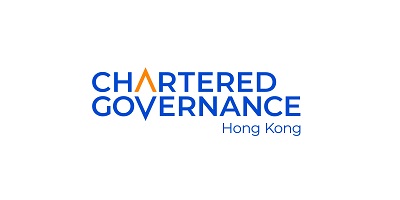Curriculum
Study Mode & Class Schedule


Part-time
1.5 years
Weekday evenings and/or
Weekends


Full-time
1 year
Weekday evenings and/or Weekends
Professional Accreditations
Graduates of the Programme are eligible to apply for full exemption from the examination requirements of The Chartered Governance Institute (CGI) and The Hong Kong Chartered Governance Institute (HKCGI).
Students are required to take eight core courses and two electives. The eight core courses are based on the corresponding papers of The Chartered Governance Qualifying Programme (CGQP) of HKCGI. Upon successful completion of the Programme, students will be awarded the degree of Master of Science in Corporate Governance and Compliance, and are eligible to apply for full exemption from the examination requirements of The Chartered Governance Institute (CGI) and The Hong Kong Chartered Governance Institute (HKCGI).




Sample Schedule
Classes are normally held at our main campus 7-10 p.m. on weekday evenings and/or 2 -5 p.m. on weekend afternoons
1 YEAR FULL-TIME MODE
1st Year
Trimester
1
Sep to mid-Dec
▼
- Corporate Law and Compliance
- Strategic Management
- Taxation
- Elective
Trimester
2
mid-Dec to late Mar
▼
- Securities Regulation
- Interpreting Financial & Accounting Information
- Risk Management
- Elective
Trimester
3
late Mar to early July
▼
- Corporate Governance
- Board Dynamics
1.5 YEAR PART-TIME MODE
1st Year
Trimester
1
Sep to mid-Dec
▼
- Corporate Law and Compliance
- Strategic Management
Trimester
2
mid-Dec to late Mar
▼
- Securities Regulation
- Interpreting Financial & Accounting Information
Trimester
3
late Mar to early July
▼
- Corporate Governance
- Board Dynamics
Summer Break - July & August
2nd Year
- Taxation
- Elective
- Risk Management
- Elective
Electives
(Offering and availability of the electives is subject to change)
- ACCT7025 Stakeholder Governance and Compliance
- ACCT7035 Sustainability Governance and Reporting
- ACCT7760 International Taxation
- ACCT7830 Risk, Compliance and Corporate Social Responsibility
- ACCT7840 Financial Regulations and Crimes
- ACCT7930 Strategic Corporate Communications
- ACCT7960 Investment Governance
- FIN7750 Financial Technology (FinTech)
- COMM7060 Issues in Corporate Communication
- COMM7250 Strategic Public Relations and Crisis Management
- ECON7130 Principles and Applications of Sustainable Finance and Investment
- ACCT7170 Project
Assessment Methods
The assessment methods of the programme follow the Grade Point Average (GPA) System set by Hong Kong Baptist University to assess coursework and examination performance. In addition to the final written examination, continuous coursework assessments including tests, quizzes, case studies, presentations, projects, and simulated exercises are used to optimise learning.
Curriculum Structure
Core Courses
This course aims to develop students’ knowledge and skills of accounting and finance to interpret financial and accounting information that provide advice to companies’ board in developing strategy and making decision.
This course covers the fundamental principles of company law and compliance, focusing on the regulatory framework for Hong Kong and non-Hong Kong companies. It includes topics such as company formation, records and reporting, financing, board and secretary duties, member rights and general meetings, takeover and restructuring, and receivership and liquidation. While the emphasis is on Hong Kong company law, relevant laws from other jurisdictions may also be discussed.
This course explores the regulatory framework for listed companies, with a focus on listing regimes, compliance with listing rules and codes, minority shareholder protection, roles of major regulators, shareholder activism, and securities regulations primarily in Hong Kong but also in other major jurisdictions.
This course empowers students to assess a company's competitive position, address managerial and structural issues, and formulate and evaluate action plans from a boardroom perspective in order to establish a competitive and sustainable corporate strategy.
This course aims to equip students with the knowledge and skills to understand and improve the effectiveness of a board of directors, including its composition, structure, dynamics, and processes, and to provide guidance to directors on strategy, performance monitoring, risk management, and corporate sustainability based on best governance practices from leading jurisdictions.
This course aims to enhance the performance of directors, company secretaries, and governance professionals by providing them with the necessary knowledge, understanding, and skills to strengthen boardroom effectiveness through fostering an appropriate culture, facilitating effective individual behaviors, and optimizing group processes.
This course introduces students to the principles and administration of Hong Kong's income tax system, covering general taxation principles, property tax, salaries tax, profits tax, depreciation allowances, personal assessment, stamp duty basics, and a brief overview of general tax planning and the Mainland China taxation system.
This course aims to expand students' knowledge of risk management as it relates to compliance management and corporate governance, exploring the board's role and the people, processes, and techniques involved in effectively assessing, monitoring, and controlling risk at all levels of an organization.
Elective Courses
This subject aims to develop students' ability to evaluate and analyze stakeholder governance and compliance issues from the perspective of a company secretary and governance professional, emphasizing the importance of considering stakeholders' interests and power within the corporate governance framework to achieve overall success for all stakeholders, beyond just financial returns for corporations.
This course explores how boards of directors and senior management can effectively incorporate ESG factors into decision-making processes, driving value creation for shareholders and stakeholders, while also examining approaches to reporting sustainability performance in a decision-relevant manner, considering the importance of ESG issues in long-term value creation and recognizing effective ESG oversight as a core competency of the board.
This course provides an overview of financial markets, covering key issues, relevant laws and regulations, including selective conduct compliance requirements, financial crimes such as anti-money laundering, fraud, and corruption in the Hong Kong context, and ongoing regulatory discussions on fintech, with the aim of fostering a strong understanding of the importance of a robust compliance management framework.
This course focuses on investment governance, which involves the effective use of resources by governing agents to fulfill fiduciary duties to beneficiaries and stakeholders, aiming to share strategies with key players such as fiduciaries, compliance officers, asset managers, and investment managers to enhance their ability to fulfill their duties.
This course equips students with the necessary knowledge and skills to identify, establish, and develop an organization's regulatory risk, ESG obligations of listed entities, and compliance framework, analyzing CSR and regulatory theories, international benchmarks, ESG obligations of Hong Kong-listed entities, and the disclosure and reporting requirements from a risk management perspective.
Strategic Corporate Communications is a course that aims to equip directors and senior management with the necessary skills to effectively lead and communicate with internal and external stakeholders, covering principles of corporate communication, investor relations, crisis communication, and integrating both theoretical and practical insights to provide students with practical knowledge in the field.
This course equips students with practical knowledge of FinTech, exploring the rapid changes in global finance, banking, and financial services, including disruptive technologies and their impact on various functions such as payments, capital raising, consumer banking, and trade, through industry case studies, enabling a deeper understanding of the evolving FinTech ecosystem.
This course offers students an extensive understanding of international income tax law, encompassing the global landscape of income tax law and policy, including the taxation of resident and non-resident individuals and legal entities on income from foreign sources, and exploring the international tax regimes in various jurisdictions, including Hong Kong and Mainland China.
The objective of this project is to allow students to apply their knowledge and skills in corporate governance and directorship by investigating and analyzing a real problem, offering the option for individual or group projects, with the opportunity to enhance interpersonal, leadership, teamwork, and communication skills for those working in teams, while also providing a supervisor to support each student in completing their project.
This course explores the integrated nature of internal and external communications in contemporary organizations, covering Asian and Western organizational theories, structures, managerial communication, and the significance of communication in various aspects such as motivation, leadership, team-building, organizational change, competitive advantages, crises, and the impact of information technology on communication.
This course covers strategic public relations and crisis management, examining communication in crises and providing strategies to prevent or minimize their impacts, incorporating concepts such as issues management, risk communication, activism, crisis communication in traditional and new media, and utilizing local and overseas cases to teach students how to handle real-life crisis situations, integrating knowledge from communication, sociology, psychology, and management.
Graduation
The awarding of the MScCGC Degree is on the basis of fulfillment of the following graduation requirements and the approval of the Senate.
A candidate should have:
- Completed an approved programme of study; and
- Submitted all coursework required; and
- Obtained a cumulative GPA of at least 2.50.




Distinction: Overall cumulative G.P.A. of 3.67 or above, with no course grade below B- and no repeated courses.
Merit: Overall cumulative G.P.A. of 3.40 – 3.66